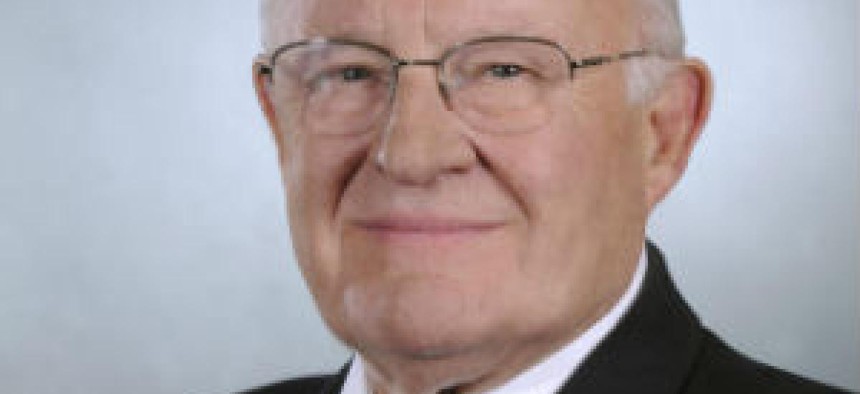Jack London on how to reverse our character crisis

CACI's Executive Chairman Jack London explores the growing crisis of character in the United States and offers three principles for reversing the trend.
Headlines have unveiled a growing crisis of character in our country. Reports of bribery, cheating, sexual misconduct, fraud, and other failures of integrity across our government, military, and business communities are disturbing. Likewise, cultural shifts in our society are allowing our people and organizations to face little or no consequences for breaking what were once hard-fast and penalty-laden rules related to failures of ethics and character.
Our country has faced challenges like these before. But the scale and scope of the current crisis is magnified and spread at the speed of Twitter. This crisis is especially alarming for the military and the defense industry. In national security, there is no room for error. If we are to be successful in protecting lives and defending our country from continuing threats, we cannot let this trend continue.
Character is a timeless attribute that underlies – and is reflected in – everything a country and its leaders do. The position of our nation and the credibility of our institutions depend on the strength of our character. How do we reverse the erosion of integrity in our military institutions, national security organizations, and defense industry? What changes need to be made to reduce or eliminate our risk of failure due to a crisis of character?
We can start with three simple, yet powerful principles:
Lead by Example
Leaders need to set good examples and ensure their teams know what kind of behavior will not be tolerated – for themselves or others. History is filled with examples. Many of the POWs in the Hanoi Hilton during the Vietnam War survived their harrowing experience because of Admiral James Stockdale. As one of the primary organizers of prisoner resistance, he created and implemented a code of conduct for all prisoners which governed responses to torture, secret communications, and behavior.
The lesson is that leaders have to talk about character and act on it. Demand action and enforce consequences when rules are broken. Honor ethical excellence as a core expectation, not as a rarity or exception. If failures continue, go the extra step to find out why. And if you cannot be honest about whether or not you are setting the right example for your organization, have the courage to allow a better leader to step in.
Make the Hard Choices
Leaders are often challenged by shifting priorities, limited resources, and organizational politics. For example, today’s defense budget constraints are creating the toughest choices facing our military leaders. Whatever is decided now will have a significant impact on our military and national security for years to come.
Making the right decision is never easy, especially under these circumstances. For some, the temptation to undermine the competition, to circumvent rules, and to get ahead at any cost is strong. Leaders, as role models, must demonstrate that doing the right thing is the best choice and deal with those who choose to do the wrong thing.
No Excuses
Accountability is at the core of character-driven leadership. Excuses allowed for one will be proactively embraced by many and failed behavior will be the new accepted standard. Any perception of excuses being accepted will be damaging to the leadership involved, their overall organization, and public trust.
The current scandals facing the military, for example, will be addressed with the customary series of investigations, hearings, and punishments for those directly involved. However, understanding the circumstances around the lapse of judgment will only help organizations if they develop procedures and make changes in their culture to avoid it in the future.
The concerns presented here are not meant to be judgmental (character is by no means about being perfect).
Rather I pose this as a call to action to leaders and organizations. A call to reverse this crisis of character and come up with long-term solutions to keep our country strong. From back office to frontline, we need to instill and uphold character as an institutional foundation that must be exemplified, empowered, and expected at all levels. Let’s not lose sight (or let’s begin to rebuild the vision) that character, values, and pride serve as the key ingredients for both personal and organizational success.
Perhaps it is time for both private and public sectors to join forces to meet this challenge. Together, we can create a new common core of individual and corporate qualifications that puts heightened emphasis on ethical leadership and character-driven behavior to ensure outstanding performance.
Our character will continue to be tried and tested. Let’s work together to raise the bar and expect more – from ourselves, from each other, and from our companies and institutions. Let’s provide our nation and the next generation with model behavior to honor and emulate. Because we’re all in this together, we will all either succeed or fail together. Our community, our nation, and our world are depending on us all to succeed.
NEXT STORY: Where to find growth in a tight DOD market